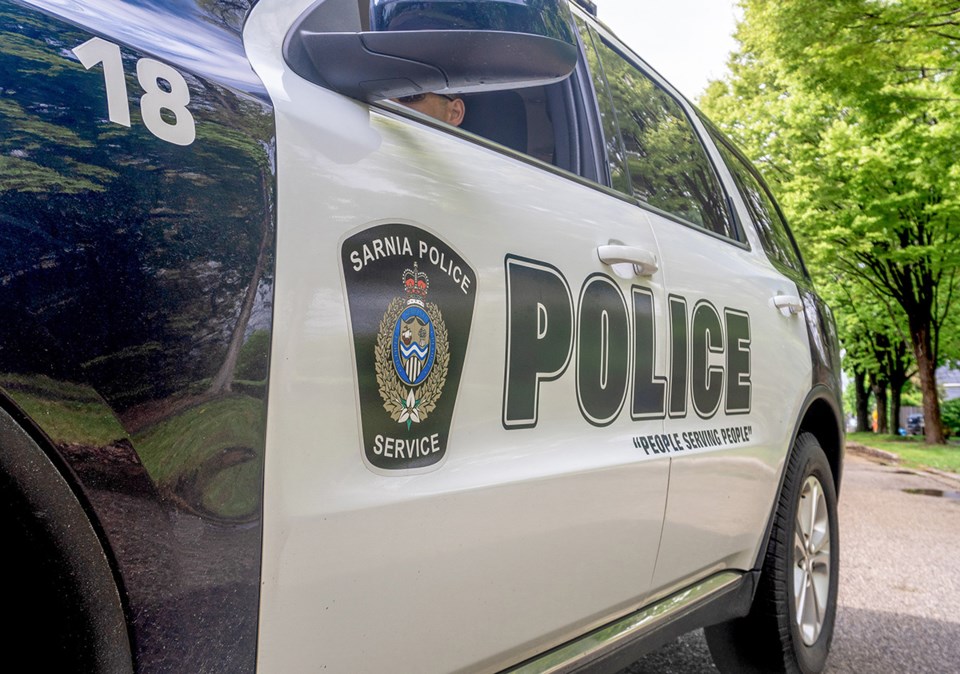Troy Shantz
A new type of first responder has taken to Sarnia’s streets.
The Mental Health Engagement and Response Team, or MHEART, is a mobile crisis intervention unit comprised of a police officer and mental health nurse from the Canadian Mental Health Association (CMHA).
The two-person team is intended to de-escalate high-pressure situations and assist people in crisis, said Sarnia Police Inspector Jeff Hodgson.
“We’re bringing the mental health professional right to the scene. Now that we have a mental health clinician… the apprehension being made, we know is being made only because it’s absolutely necessary.”
MHEART is on patrol for four, eight-hour shifts weekly. It responds to active situations with other officers as required, and conducts follow-ups with at-risk individuals already known to police.
Another mental health nurse is assigned to work with the OPP, said Paula Reaume-Zimmer, vice president of addictions and mental health at Bluewater Health.
The nurses conduct real-time assessments and communicate with Bluewater Health and CMHA prior to bringing an individual to hospital, if necessary, Reaume-Zimmer said.
More information from the field allows for quicker admittance and dramatically reduces wait times for the patient and officers, she explained.
“It’s a really welcome addition to the mental health and addiction resources,” she said.
The benefits were felt on the front lines the very first week because “it’s a much more streamlined approach” said Hodgson
The unit’s rollout coincided with a new provincial police-hospital transition framework designed to help patients in crisis get timely care.
The new approach was announced by Ontario Deputy Premier and Health Minister Christine Elliott at Bluewater Health on Aug. 9, along with Solicitor General Sylvia Jones and Associate Minister of Mental Health and Addiction Michael Tibollo.
Because MHEART isn’t always on duty, the framework gives city police officers more training and resources to deal with people in crisis, and to communicate with the hospital and CMHA in a standardized manner, explained Hodgson.
Police cruiser tablets are now equipped with an app that officers use to input mental health information following an incident. The series of questions take less than 10 minutes to fill out, said Hodgson.
The gathered data generates a score that dictates whether further action or follow-ups are required, and transmits data to CMHA and the hospital.
Officers are also trained on terminology and symptoms, better equipping them to tell mental health workers about situations in the field, Hodgson added.
“It’s going to have people on both ends of the patient care spectrum speaking the same language, and that’s really important,” he said.
“By necessity, police officers are the de facto first responder for mental health in the community. We have become that.”
